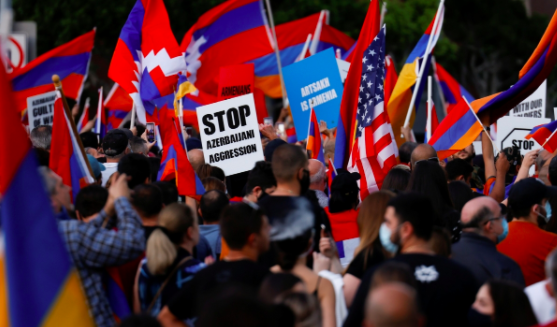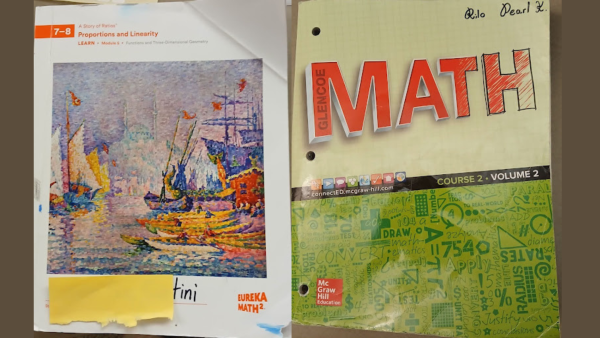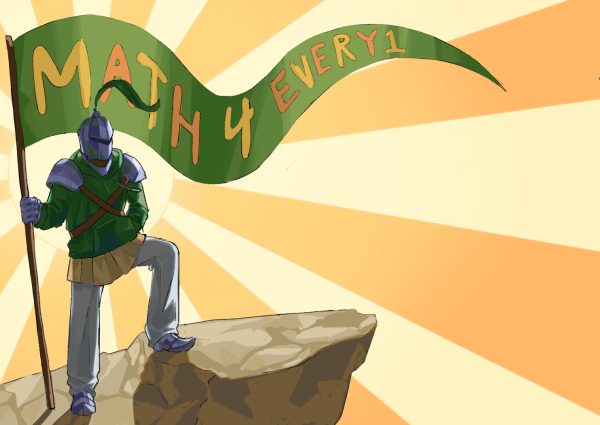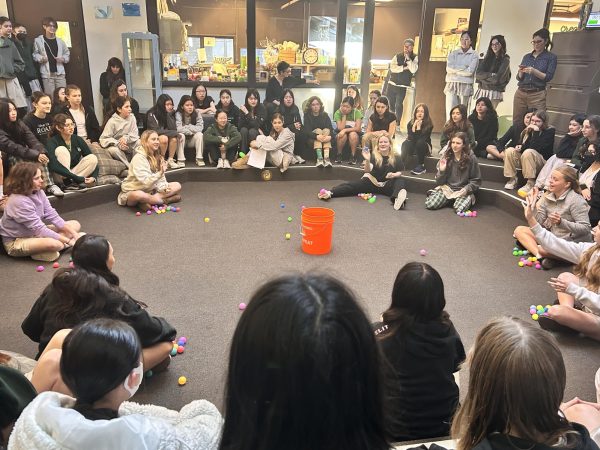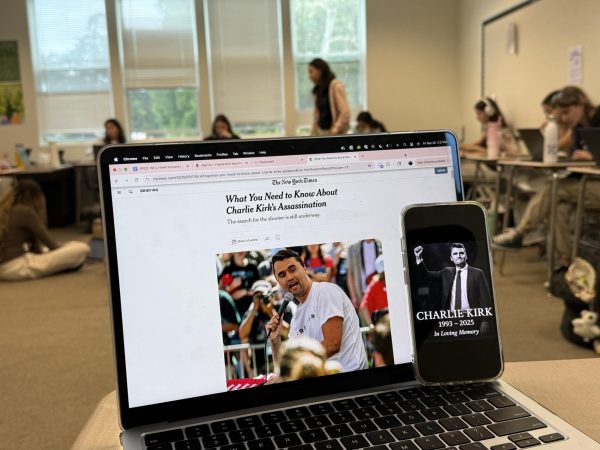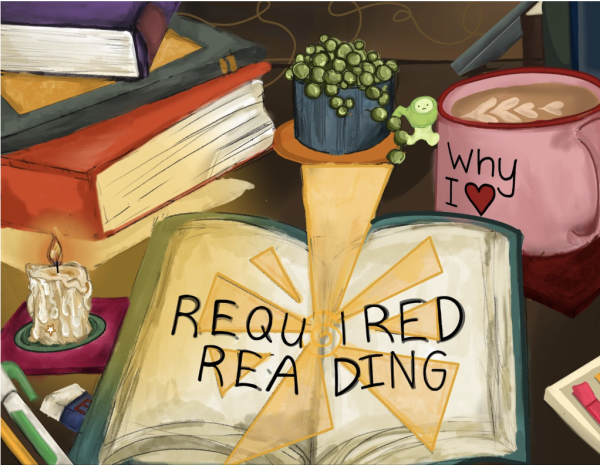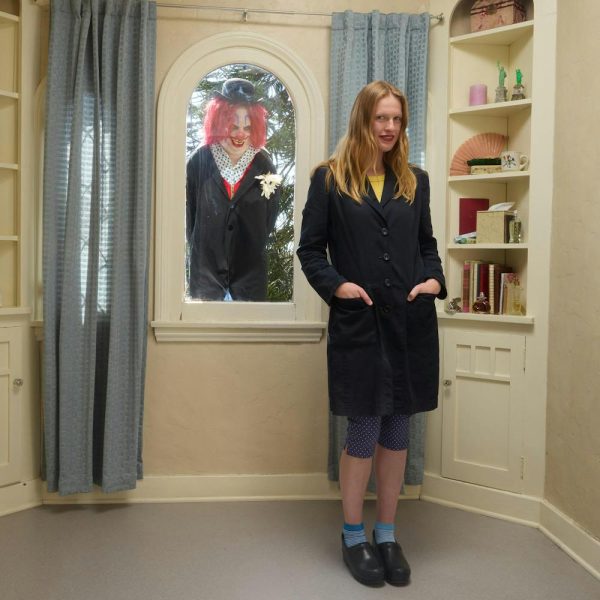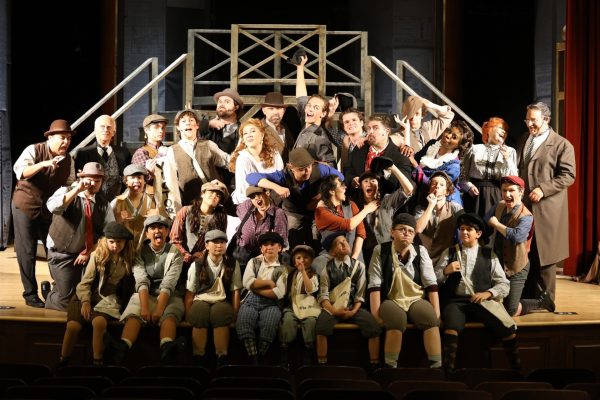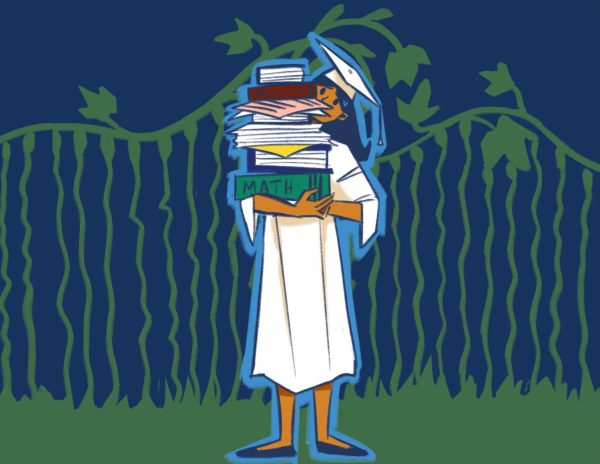Opinion: Burnt Leaves, Strong Roots
Every Armenian child in the world grows up hearing about the Armenian Genocide, the period from 1914 to 1917 when over 1.5 million Armenians were murdered by the Turks of the Ottoman Empire.
Every year on April 24th, along with the rest of our families, we join thousands of Armenians to not only protest Turkey’s denial of the genocide but also to commemorate all of the Armenian lives lost due to the genocide. Waving our small Armenian flags in the air and seeing it ruffle against the wind makes us feel proud of who we are.
The history between Turkey and Armenia is often echoed in today’s conflicts. A new eruption of armed conflict was initiated by Azerbaijan on September 27th. It has been estimated that 5,000 people have been killed in fighting between Azerbaijan and Armenian forces.
The fighting is about Nagorno-Karabakh, a mountainous territory, lying between Lower Karabakh and Zangezur with over 150,000 inhabitants. This land is recognized as a part of Azerbaijan, but it is governed by Armenians. One year before the Soviet Union fell, this Armenian populated region of Nagorno-Karabakh voted to secede from Azerbaijan. When the Soviet Union was dissolved, Azerbaijan and Nagorno-Karabakh, a region, declared their independence from the Soviet Union. Azerbaijan believes it has rights to this territory, but Armenia controls this region due the majority of Armenians living in Nagorno-Karabakh.
The long history of fighting for Nagorno-Karabakh is still present today. A territorial conflict over this region has taken place between Armenia and Azerbaijan.
Deputy Mayor of International Affairs for Los Angeles, Nina Hachigian, in trying to explain how the conflict connects to this history said, “Armenia’s territory has shrunk and shrunk and shrunk over the last thousands of years, and so, the fact that Azerbaijan is pushing to retake this territory is another reminder of being displaced and having land taken away.”
For Armenians, Azerbaijan’s armed attack is another attempt to push the Armenians living in Nagorno-Karabakh for thousands of years out of the region. Turkey has escalated the conflict by offering direct support to Azerbaijan. Armenia has accused Turkey of involvement in the conflict around Nagorno-Karabakh, but Turkey has denied these accusations. However, the combined actions of Azerbaijan and Turkey echo the genocide in its attempt to displace and eradicate Armenians.
In response to the conflict, Armenian Americans have been protesting. A crowd of over 100,000 people on October 11th, according to Los Angeles Police, marched through Beverly Hills to show their support for Armenia. Deputy Hachigian explained the importance and effectiveness of protests by saying, “Like all protests, it signals to political leaders that there are a lot of people who care about this issue, and when that’s the case, political leaders respond, usually.” The protests have increased awareness of this conflict and how it negatively impacts Armenians.
Armenia’s international allies haven’t been quick to respond. Deputy Hachigian explained, “The role of the United States has to be to help bring the sides together.” However, this is not what the United States has done. The United States benefits from having Turkey as an ally and makes a profit from their partnership. As a result, not much help has been offered by President Trump and the current administration. France has been directly involved in support of Armenia by trying to negotiate. Russia has not provided direct support, but they have been helping negotiate the conflict.
Deputy Hachigian said, “Turkey is a NATO ally, but is not acting as an ally. They have been increasingly aggressive and making moves that are not in NATO’s interests.”
Hamlet Hovsepyan fought on the front lines in the very beginning of the conflict. He explained, “We are here to protect our land, the children who are dying there. We are not going to let them do it — we are not going to let the Turks commit a second genocide.”
The Turkish government has denied any involvement in sending aid and military support to Azerbaijan. However, Turkey has vowed to assist its long-time ally, Azerbaijan “on the battlefield or the negotiating table,” explained Turkish officials.
After about six weeks of fighting, Azerbaijan’s forces took control over Nagorno-Karabakh region’s second-largest city. They cut access to an important road needed for military supplies. Armenia, Azerbaijan, and Russia have signed an agreement to end military conflict over Nagorno-Karabakh. The cease-fire demands that Armenia’s army withdraw from the land. Nikol Pashinyan, the Armenian Prime Minister, described the deal as “incredibly painful both for me and our people.”
Watching what has transpired over the last couple of months has taught me a lot about Armenians. I watched how they protested through singing, dancing and even making food out on the streets of the Los Angeles area. I am more proud of being Armenian today than I have ever been before.
Growing up, I have never had a teacher discuss the Armenian Genocide. The Armenian Genocide is still denied by many countries, and not many people are aware of what took place. In the past, Armenians have always been displaced, but this conflict is yet another attempt.
When people protested, they were not only protesting against this conflict, but also against what this conflict represents. This conflict carries the echoes of the Armenian Genocide. When I was protesting for the Armenian Genocide a few years ago, I saw a message written on someone’s shirt. The shirt read “you can burn our leaves, but you can’t get rid of our roots.” I still remember these words today because it represents what Armenia is to me. This conflict was an attempt to take Armenia’s roots away, but it just burned our leaves. Armenia’s roots will continue to grow and stay strong.
For more information on the conflict, explore the following articles:
Armenia and Azerbaijan: What Sparked War and Will Peace Prevail?
Armenia-Azerbaijan: Why did Nagorno-Karabakh spark a conflict?
Armenia-Azerbaijan War: What is Happening in Nagorno-Karabakh?
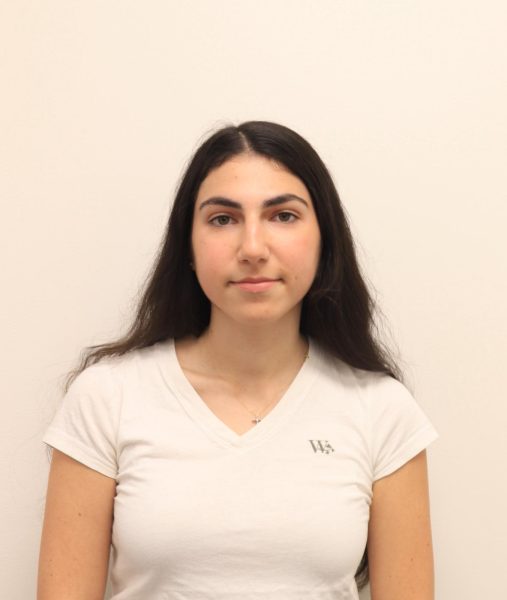
Sophene is a senior and in her sixth year on Spyglass. In her free time, she enjoys baking, spending time with family, and watching Gilmore Girls and Friends.




























![Dr. Zanita Kelly, Director of Lower and Middle School, pictured above, and the rest of Westridge Administration were instrumental to providing Westridge faculty and staff the support they needed after the Eaton fire. "[Teachers] are part of the community," said Dr. Kelly. "Just like our families and students."](https://westridgespyglass.org/wp-content/uploads/2025/03/dr.-kellyyy-1-e1748143600809.png)






















